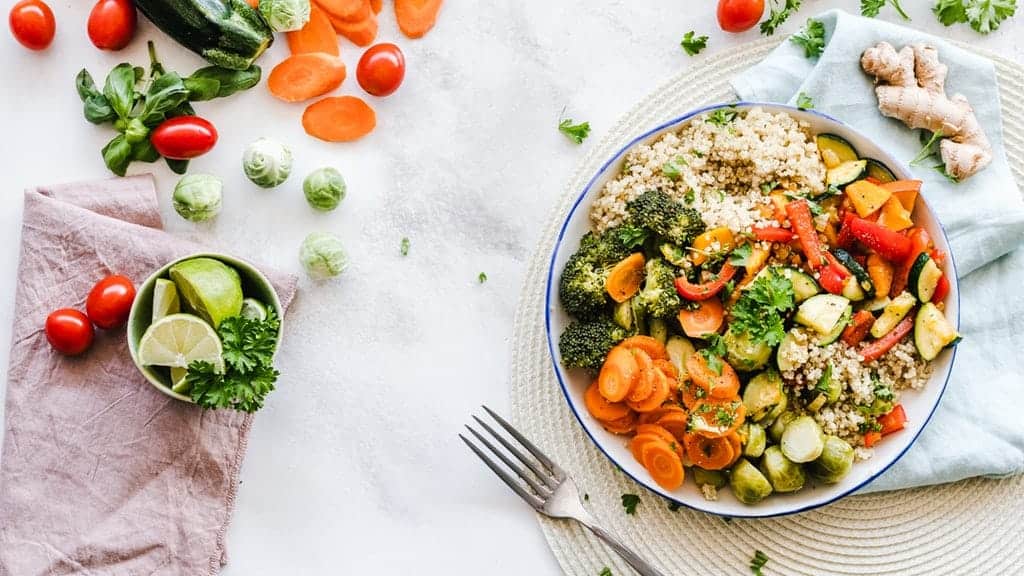Fiber is one of the most important nutrients to have in your diet. Fiber aids in preventing constipation, makes you fuller and reduce weight, absorbs nutrients in the colon, and more. For these reasons, consuming a diet rich in fiber must be a priority.
Most of these foods consist of vegetables, legumes, and fruits. Fiber can also be found in processed foods like brown bread. Including these foods in your diet can be beneficial to your body.
Here are the 15 best fiber-rich foods according to doctors.
1. Figs
Figs are one of the first plants to be cultivated in human history. They have plenty of nutrients, including B vitamins, magnesium, calcium, potassium, and others.
Both fresh and dried fruits are excellent sources of soluble fiber, which aids in slowing down the movement of food in your intestines, offering more time for absorption of nutrients. On the basis of anecdotal evidence, dried figs have been utilized as a home remedy to treat constipation for numerous years.
According to a study, fig paste was discovered to boost bowel movements in dogs that were constipated. You can get 1.9 grams of soluble fiber in 37 grams of dried figs.
2. Kidney Beans
Kidney beans are another essential component of a fiber-rich diet. Their name originates from their feature shape. They are a primary ingredient in chili con carne and an exceptional source of protein, complex carbs, and dietary fiber.
Kidney beans are an ideal source of soluble fiber, especially pectin. But some individuals find beans difficult to digest. In that case, begin increasing your intake of kidney beans gradually to prevent bloating.
You will find 3 grams of soluble fiber in 133 grams of cooked kidney beans.
3. Pears
Pears contain a refreshing and crisp taste and are a great source of potassium, various antioxidants, and vitamin C.
Additionally, they are a rich source of fiber. A medium-sized fruit offers 5.5 grams of fiber. Out of all the fiber found in pears, 29 percent of it is soluble fiber. The main form of this soluble fiber is pectin.
A medium-sized pear has 1.5 grams of soluble fiber.
Since pears have high levels of sorbitol and fructose contents, they can at times cause a laxative effect. If you have irritable bowel syndrome, you will need to mind the number of pears you eat.
4. Turnips
Turnips are part of the root vegetable family and are a fiber rich diet. Larger varieties are normally fed to farm animals, but the small varieties are an excellent addition to your diet.
Turnips are rich in potassium, calcium, vitamin C, and vitamin K. They also have plenty of fiber, whereby one cup of turnips has 5 grams of fiber. Cooked turnips weighing 82 grams have 1.7 grams of soluble fiber.
5. Broccoli
Broccoli features a cruciferous vegetable that thrives in cool seasons. It is typically dark green, but you can get purple varieties.
It is rich in vitamin K, which aids the clotting of your blood, and is an exceptional source of vitamin C, potassium, and folate. Additionally, it contains anticancer and antioxidant properties.
Broccoli is a great source of dietary fiber. You will get 2.6 grams of fiber in 100 grams of broccoli. More than 50 percent of the fiber is soluble.
Cooked broccoli weighing 92 grams has 1.5 grams soluble fiber.
The plenty of soluble fiber in this vegetable can aid the health of your gut by feeding healthy bacteria in your colon. These bacteria offer advantageous short-chain fatty acids, like acetate and butyrate.
6. Sweet Potatoes
Sweet potatoes are rich in fiber, B vitamins, potassium, and beta-carotene. A medium-sized sweet potato has over 400 percent of the daily intake of vitamin A.
Additionally, this fiber rich diet staple has 4 grams of fiber in a medium potato. Almost 50 percent of this fiber is soluble. A cooked sweet potato weighing 150 grams has 1.8 grams of soluble fiber.
Hence, sweet potatoes have a significant contribution to your everyday fiber consumption. Soluble fiber can be critical to the management of your weight. The more soluble fiber you consume, the more gut-satiety hormones are released to aid in reducing your overall appetite.
7. Avocados
The origin of avocados is Mexico, but they have become popular all over the globe. The most common type of avocados is Haas avocados. They are amazing sources of dietary fiber, vitamin E, monounsaturated fats, and potassium.
A single avocado has 13.5 grams of dietary fiber. However, a third of avocado has 4.5 grams of dietary fiber and 1.4 grams of soluble fiber.
Avocados are rich in both insoluble and soluble fiber. In comparison to other famous sources of fiber, they have smaller amounts of antinutrients oxalate and phytate, which can minimize the absorption of nutrients.
8. Brussels Sprouts
Brussels sprouts are also a fiber rich diet, in addition to having plenty of minerals and vitamins, as well as cancer-fighting agents.
They have high levels of dietary fiber, whereby 156 grams of Brussels sprouts has 4 grams of fiber. This fiber is soluble.
This fiber is essential since it aids in feeding beneficial gut bacteria. They offer B vitamins and vitamin K, together with short-chain fatty acids that support the lining of your gut.
9. Lima Beans
Lima beans are also called butter beans and are massive, flat, and yellow-white beans. They primarily have protein and carbs together with some fat. Their dietary fiber content is lower in comparison to black beans, but the amount of soluble fiber is almost similar.
Lima beans also have the soluble fiber pectin that is related to decreasing blood sugar spikes after meals. Raw lima beans are poisonous and require soaking and boiling before consumption. Lima beans weighing 128 grams have 5.3 grams of soluble fiber.
10. Black Beans
In addition to giving your meals a meaty texture, black beans are also a fiber rich diet. A cup of black beans, which is normally 172 grams, has 15 grams of dietary fiber. This amount is 40-60 percent of the required daily intake for adults.
Cooked black beans that weigh 129 grams have 5.4 grams of soluble fiber. Black beans have pectin, a soluble fiber form that becomes like gum in water. This can delay the emptying of your tummy and make you feel satisfied for longer, offering your body more time for nutrient absorption.
Black beans also have high levels of iron and protein. Additionally, they are fat-free and low in calories.
11. Apples
Apples are some of the most popular fruits in the globe. Particular varieties are usually sweet while some like Granny Smith used for cooking are very sour.
Eating this fruit is linked to a low risk of numerous chronic diseases. This fiber rich diet has various minerals and vitamins as well as soluble fiber pectin.
Pectin found in apples has multiple health benefits, like minimizing the risk of getting heart disease and boosting the function of the gut. A medium-sized apple has 1 gram of soluble fiber.
12. Carrots
One of the tastiest and popular vegetables on earth is carrots. Steamed or boiled carrots are a primary ingredient to many meals but can also be utilized to make desserts such as carrot cake or grated into salads.
Carrots have high levels of beta-carotene. Some of this compound is changed to vitamin A. This vitamin helps your eyes and is especially critical for night vision.
Chopped carrots that weigh 128 grams have 4.6 grams of dietary fiber and 2.4 grams of soluble fiber. Because most people eat this vegetable on a daily basis, it can be a primary source of soluble fiber.
13. Apricots
Apricots are a fiber rich diet that comprises small and sweet fruits that have various colors, including orange, yellow, and red tinge. They are rich in vitamins C and A, and they have low levels of calories.
Three apricots offer 2.1 grams of fiber, and most of it is soluble. This amounts to 1.4 grams of soluble fiber.
In Asia, this fruit has been utilized in traditional medicine for many years, and Asians believe that it protects people from heart conditions. They can also aid your digestion.
According to research, it was discovered that mice that ate apricots’ fiber had a stool that was heavier than that of the mice that only ate insoluble fiber.
14. Nectarines
These are stone fruits that thrive in warm and temperate regions. They resemble peaches but lack the fuzzy skin.
They are rich in vitamin E, potassium, and B vitamins. Additionally, they have various substances that contain antioxidant properties.
A medium-sized nectarine contains 2.4 grams of fiber. Over 50 percent of this fiber is soluble and amounts to 1.4 grams.
15. Flaxseeds
Flaxseeds are also referred to as linseeds and are small and golden, yellow, or brown seeds. They are rich in nutrients and can be a great addition to bliss balls, bread, or smoothies.
Sprinkle a tablespoon of flaxseeds on your porridge to add 2 grams of protein and 3.5 grams of fiber to your breakfast. Moreover, they are one of the top sources of omega-3 fats that are plant-based. A tablespoon of flaxseeds that weighs 14 grams has 0.6-1.2 grams of soluble fiber.
If you can, soak the seeds throughout the night to let the soluble fiber mix with water to create a gel, which could help digestion.
Embrace a Fiber Rich Diet, You’ll Reap Health Benefits
If you want a healthy heart, to maintain weight, to prevent type 2 diabetes, and have healthier bones, then be sure to consume these fifteen foods. All of them have significant amounts of soluble fiber, which is critical to your gut health.
Therefore, be sure to balance the amounts of these foods in your meals for a fiber rich diet.


















